Turkey and EU - a Friend in Need Is a Friend Indeed
Adelina Marini, October 6, 2015
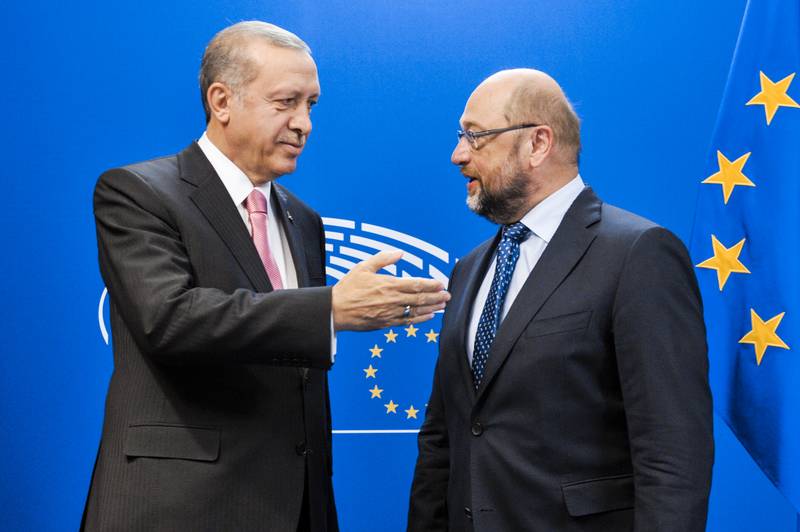
In the best of relationships between friends there comes a time when friends say straight to each other’s faces what they don’t like about the friendship. Something like that happened between Turkey and the European Union on October 5th when Turkey’s president Recep Tayyip Erdoğan arrived in Brussels for an official visit. Tension between the two old friends could be seen in all public appearances of the Turkish president in Brussels with the claims of good friendly relations failing to eradicate the impression that the two sides have grown quite distant from each other. A process that has been evolving for quite a few years now and obviously the moment has come for friends to say some things to each other in the face. Regrettably it was a painful experience for the EU, which got a lesson in humanity form the state, which, as the European Commission keeps signalling about in each annual progress report, is allegedly violating human rights, exerting pressure on the judiciary and the media, and does nothing to solve the issues of violence against women and children and forced marriages.
Relations between Turkey and the EU have grown considerably colder over the last few years due to the stable anti-democratic course led by Recep Tayyip Erdoğan, who had three incomplete terms as a Prime Minister and now is president, over his decade in power. Besides the turn to authoritarianism, a problem in the Turkey-EU relationship is the lack of a clear and decisive answer from the EU and all its members whether they accept Turkey becoming one day a member of the Union. Turkey’s membership negotiations have been frozen for many years because of vetoes from Cyprus and France, but besides the concrete reasons it is the member states’ indecision whether Turkey with its multi-million Muslim population could be a part of the European system of values that is blocking the process. The situation is made even more complicated by the fact that although Turkey keeps stating its strategic choice remains EU membership – a fact Mr Erdoğan highlighted on October 5th in Brussels as well – in fact over the last few years the country has distanced itself considerably from the European system of values, which makes any reopening and successful completion of negotiations more unlikely.
Since the start of the Syrian crisis, however the EU has been trying to soften the tone towards Turkey in appreciation for the humanitarian efforts of the state and the foreign policy role of Turkey in the region. This softening has materialised in the opening of a single negotiation chapter for the last four years and exchanged high-level visits. Meanwhile Turkey became heavily intolerant towards the EU’s patronising attitude and made numerous requests to be treated as an equal partner. There was more than that seen on October 5th – a change of places. From a state that has had the EU shaking a finger at it, Turkey became the mentor. The EU did nothing to help Turkey deal with the refugee influx and the raising pressure in the Middle East until the refugee flow reached the European shores.
European Council President Donald Tusk was frank enough on Monday to admit publicly after his meeting with Recep Tayyip Erdoğan that it was exactly because of the refugee crisis that he decided several weeks ago to boost the EU’s contacts with Turkey. Not because Turkey’s place is in the EU and the Union should aid its candidates, but because it needs Turkey. He counted that in the space of just one month he met with both the President and Prime Minister Davutoğlu. Moreover, he stated that the EU is now prepared to address Turkey’s longstanding demands, most importantly the one about removing the visa regime. Except Donald Tusk there were others that demonstrated readiness to not only hear but meet some of Erdoğan’s demands like the bosses of the European Parliament and the European Commission Martin Schulz and Jean-Claude Juncker.
Chill and discomfort radiated from the statements of Donald Tusk and Martin Schulz. Friendliness could only be felt in the interaction of the veteran Erdoğan and his European equivalent Jean-Claude Juncker, who also has an unprecedentedly long track record as Luxembourg Prime Minister and a factor in European politics. During the Turkish president’s speeches, however, you could feel inconvenience and discomfort throughout.
It is not you, but we who are threatened
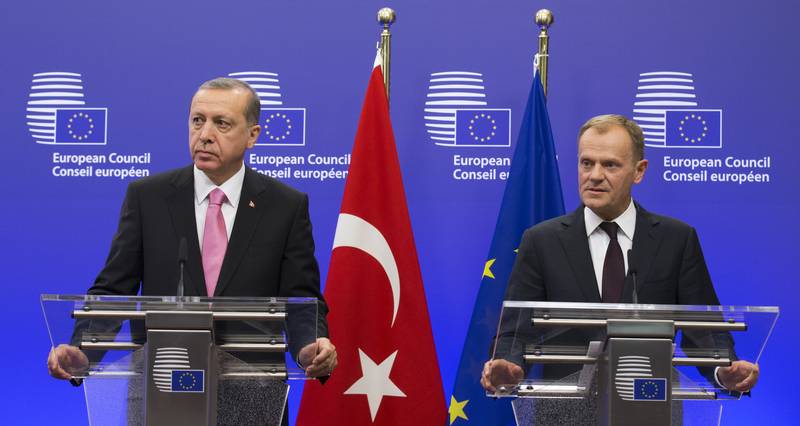 After his meeting with Donald Tusk the Turkish president presented a lecture, making the former Polish PM feel quite uneasy in his seat. Mr Erdoğan was targeting the EU’s weakest spots and looked triumphant. “Turkey is a country which has been for more than 4 years now opening its doors to all these people, who have been fleeing conflict in Syria and in Iraq, and we have been the ones who provided support for them and care at the highest levels. And this we have done without any discrimination whatsoever. And we never sent people who came to Turkey to other countries”, he said, obviously as a reply to the statements of European leaders from Central Europe, who expressed religious preferences towards the refugees and the relocation mechanism for refugees from the most affected countries to the core of the Union. Erdoğan reminded that at the moment in Turkey there are close to two and a half million refugees, 300 thousand of whom are from Iraq and the rest are from Syria. To this point, he said, Turkey has spent 7.8 billion US Dollars for them, while the overall support that Turkey received from other countries is 417 million US Dollars.
After his meeting with Donald Tusk the Turkish president presented a lecture, making the former Polish PM feel quite uneasy in his seat. Mr Erdoğan was targeting the EU’s weakest spots and looked triumphant. “Turkey is a country which has been for more than 4 years now opening its doors to all these people, who have been fleeing conflict in Syria and in Iraq, and we have been the ones who provided support for them and care at the highest levels. And this we have done without any discrimination whatsoever. And we never sent people who came to Turkey to other countries”, he said, obviously as a reply to the statements of European leaders from Central Europe, who expressed religious preferences towards the refugees and the relocation mechanism for refugees from the most affected countries to the core of the Union. Erdoğan reminded that at the moment in Turkey there are close to two and a half million refugees, 300 thousand of whom are from Iraq and the rest are from Syria. To this point, he said, Turkey has spent 7.8 billion US Dollars for them, while the overall support that Turkey received from other countries is 417 million US Dollars.
“However, we continue to maintain our open door policy,” stressed the Turkish head of state. He continued to strike at Europe’s weak spots by saying that since the beginning of the year Turkish coastguard has rescued 600 thousand people in the Aegean and Mediterranean seas. “We didn't leave them to their deaths,” he underlined. His lecturing continued with the fact that the Turkish people have opened their doors and hearts to the refugees. Many Turks opened their houses and shared their dinners with the refugees. Recep Tayyip Erdoğan refrained from directly accusing his European partners for not doing likewise and remained content in only saying, somehow unrelated to anything else, that “And we see more recently the EU countries coming face to face with this flow of asylum-seekers. And our European friends are in an effort to establish a common position with respect to this growing situation”.
Again indirectly, Erdoğan said that it is not the EU but Turkey that is threatened by the refugee crisis, for it shares a 911-kilometre long border with Syria and a 350-kilometre one with Iraq. Demonstrating superiority to his hosts the Turkish president sent another, this time more direct, criticism towards European states – their attitude towards the arch-enemy in Turkish society – the PKK. Erdoğan reminded that the PKK is just as much a terrorist organisation as is Daesh (Islamic State). There are no good and bad terrorists, he said and reminded that although the PKK is recognised as a terrorist organisation by the EU there are still countries that have not implemented that in practise. “I wholeheartedly believe that our European friends will show the necessary sensitivity to this point”, he said.
The EU’s reply was chilly. Donald Tusk refrained from unnecessary demonstrations of friendliness and sternly stated that without doubt Europe needs to manage its borders better, but the same is expected of Turkey. “The situation where hundreds of thousands of people are fleeing to the EU via Turkey must be stopped. And we cannot do it on our own, we need the Turkish side", stated Tusk and reminded that rules and agreements must be adhered to, including the readmission agreement that was signed in 2013 and came to power on October 1st of last year.
From media freedom to propaganda
The attitude toward and the relationship with media is highly indicative for the level of democracy in a certain state. During his visit in Brussels the Turkish president made it crystal clear that media are not on his agenda. There was no time allocated for journalists’ questions in all of his public appearances after the meetings with the leaders of the three European institutions. Only statements. It became clear from the speeches of European leaders that only the President of the European Parliament Martin Schulz raised the issue of media freedom in Turkey. He picked his words very carefully and did not look exalted by his meeting with the Turkish president. He said it was a ”very intensive exchange of views about the situation in the relationship between EU and Turkey.” He added that he listened very carefully to the positions of the Turkish president. “I think it is not a surprise for you that president Erdoğan didn't put the highest attention to that item [media freedom] in our exchange but I raised the point”.
According to Schulz, Erdoğan requested that the EP leads a balanced debate on Turkey on Wednesday and votes in a balanced resolution when it comes to the country’s internal security. The boss of the European Parliament informed the Turkish president of the concerns that many MEPs have regarding media freedom and journalists’ independence. There are concerns about media freedom in the EC as well, whose last year’s report on Turkey’s progress towards European membership states that freedom of expression has been severely restricted by the amendments to the law on Internet. The blanket bans on YouTube and Twitter have raised serious concerns, says the report. Those bans were later overthrown by the Constitutional Court. The report also notes that Turkish state officials continue to make statements “having an intimidating effect on the media. This, together with the ownership structure of the Turkish media sector, led to widespread self-censorship in the press, as well as resignations and dismissals of journalists”.
Despite this severe assessment of the EC, its boss Jean-Claude Juncker stressed on the friendly relations with Erdoğan by repeatedly mentioning the words "friend" or "old friend" during his brief statement. He said that he has always supported the process of reforms in Turkey under Erdoğan’s leadership. The former PM of Luxembourg stated that he was strongly in favour of seeing the visa issue with Turkey moved forward. He said it before the start of his talks with the Turkish president, admitting himself that he sees how “not really intelligent” this is. At the same time the Turkish president warned that one should be careful with the “black propaganda” that is circulated in European media by terrorist groups. He meant mainly the PKK.
The EU is hesitant regarding buffer zones
Besides the well-familiar Turkish requests Erdoğan presented several other solutions to the refugee problem and the crisis in Syria. First comes his request to create safe zones in Syria itself close to the border with Turkey. He feels the safe zones will allow for the voluntary return of refugees. Two weeks ago Turkish Prime Minister Ahmet Davutoğlu sent a letter to Bulgarian PM Boyko Borissov in which he states that if such zones are not created there will be more than seven million people who will start from Syria towards Europe. The Bulgarian Prime Minister adopted this argument as his own and defended it during the emergency summit in Brussels on September 23rd. 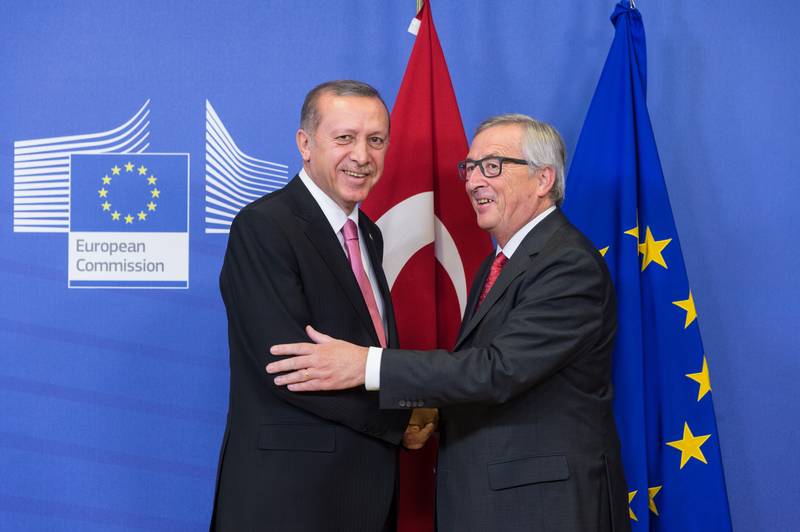 It was, however, met chilly by the European institutions. According to Martin Schulz, a decision for such a zone could only be made at the UN Security Council level.
It was, however, met chilly by the European institutions. According to Martin Schulz, a decision for such a zone could only be made at the UN Security Council level.
High Representative of the European Union for Foreign Affairs and Security Policy Federica Mogherini thinks that it is not realistic to expect that Syrian refugees can be persuaded to go back. The second thing proposed by Erdoğan is training and equipping the forces fighting Assad, for he reminded that the war in Syria is a result of the state-sponsored terrorism carried out by Assad himself. Thirdly, he suggested a no-fly zone is established.
Good dictator or bad dictator?
After telling each other everything to the face, the EU and the Turkish president agreed to establish a joint working group to look for points of intersection between the demands of Turkey and those of the EU. Then it will become evident whether the good friendship between Turkey and the EU stepped down to let in pragmatism in relations. If it is the latter, one should not forget that Russian President Vladimir Putin for a long time pressed for pragmatism in relations with the EU, leading to the current state of relations between the EU and Russia. The notable difference is that Russia never was and is not likely to be a candidate for EU membership. Yet friendship suggests sharing common values. The question is whether the EU is ready to sell its own in the name of saving itself from the refugee influx. You could conclude from the Turkish president’s lecture in humanism that the EU has once already traded its values, inside the Union itself at that, in the name of preserving party majority. This poses the question if to Turkey there are no good and bad terrorists, there are good and bad dictators to the EU.
Translated by Stanimir Stoev
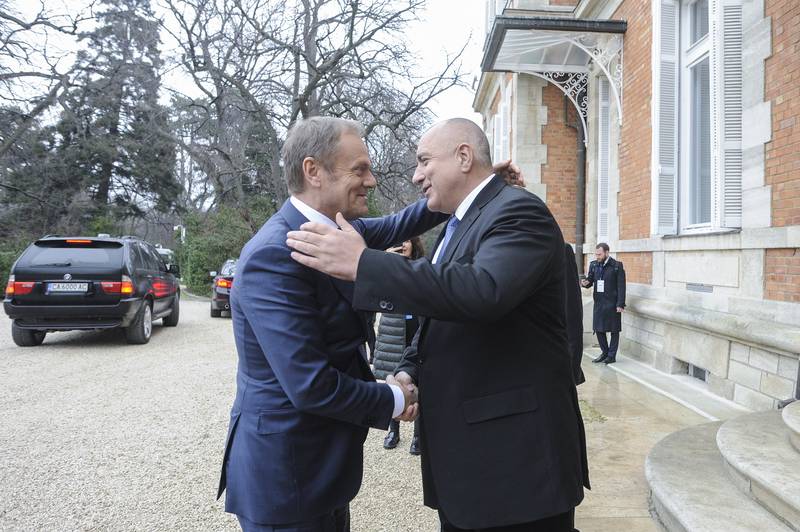 Donald Tusk, Boyko Borissov | © Council of the EU
Donald Tusk, Boyko Borissov | © Council of the EU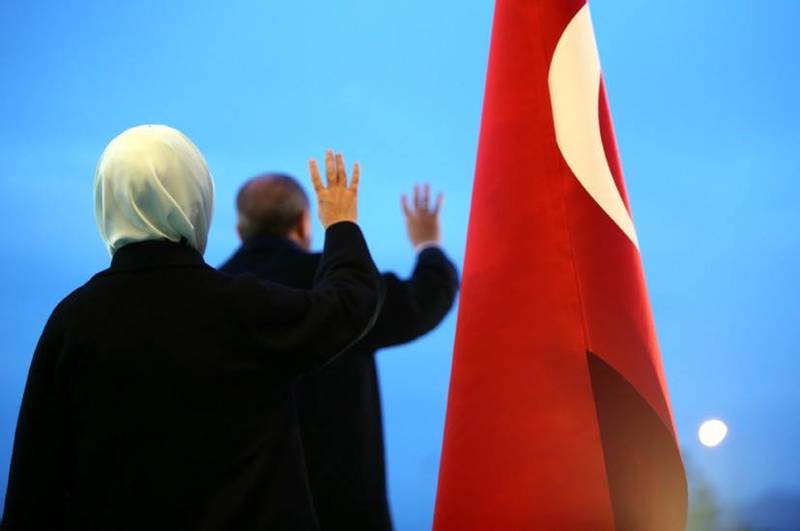 | © Turkey Presidency
| © Turkey Presidency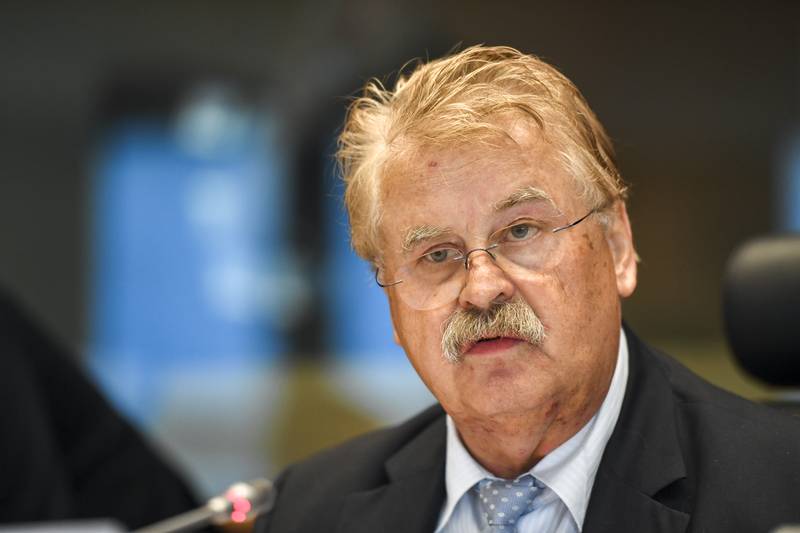 Elmar Brok | © European Parliament
Elmar Brok | © European Parliament